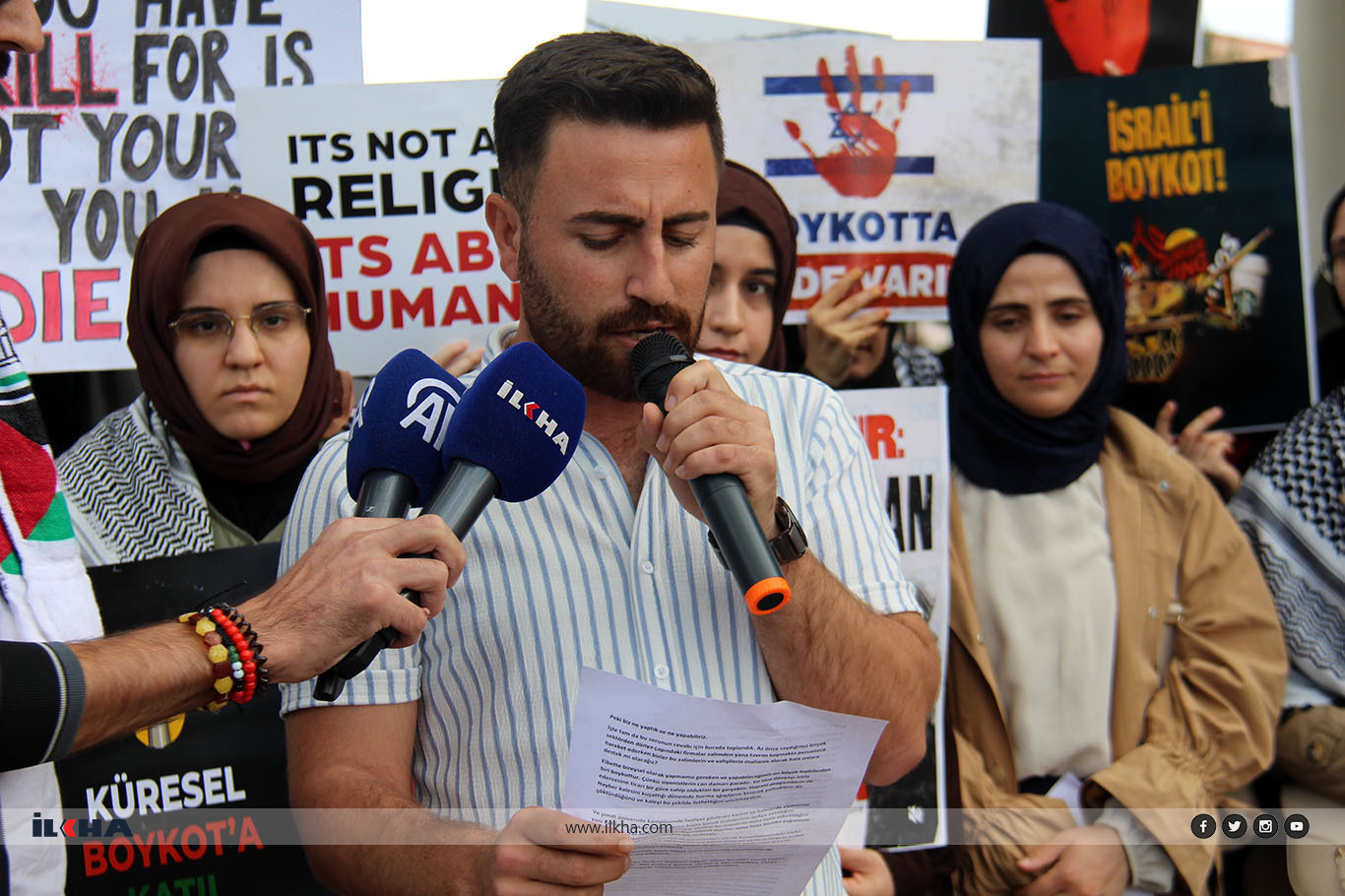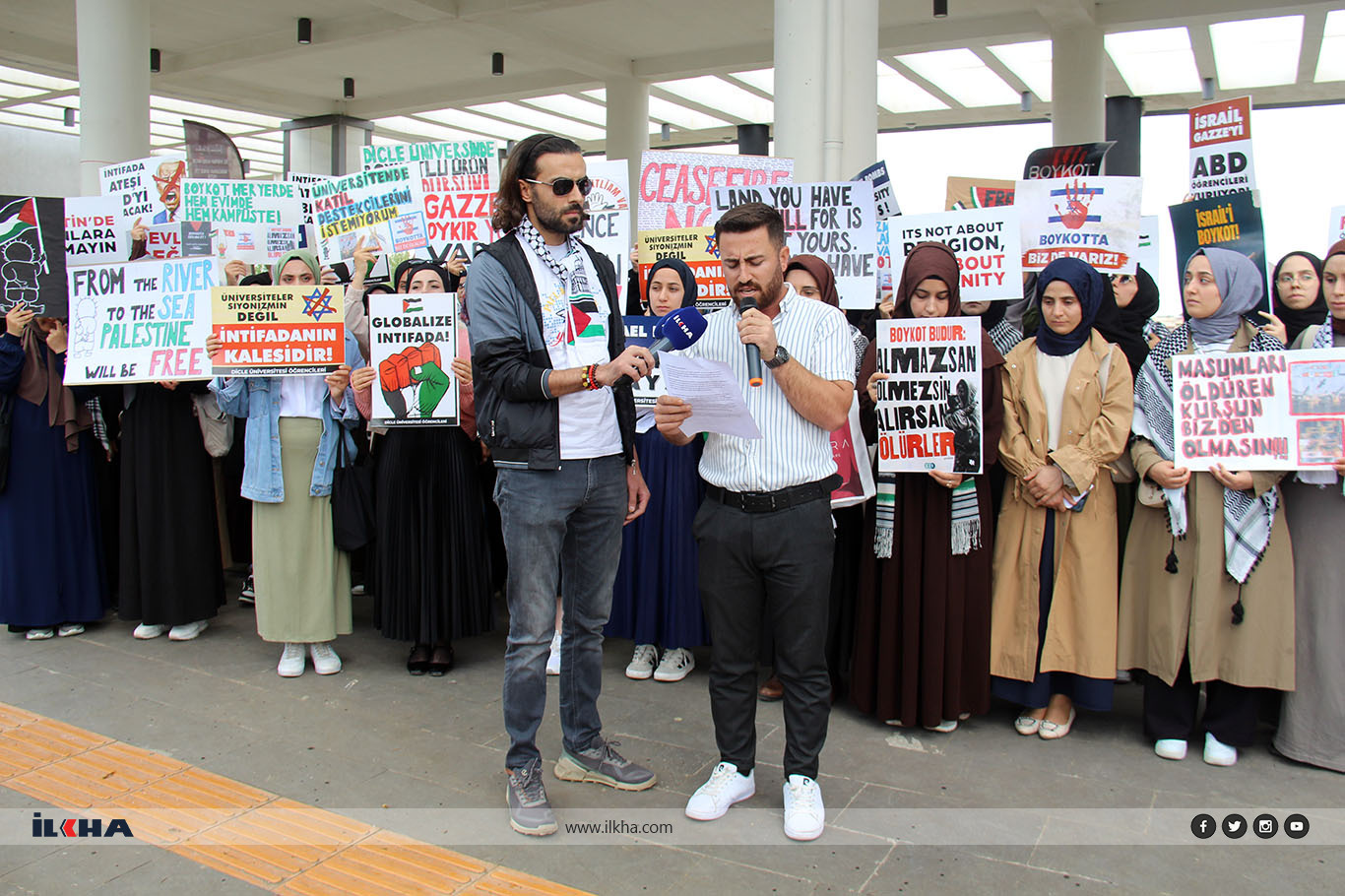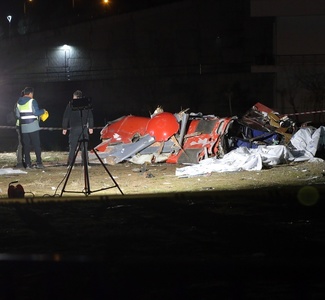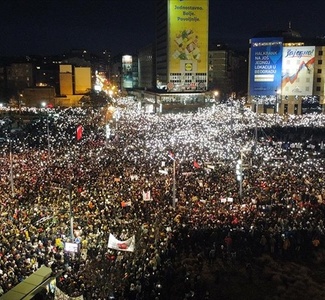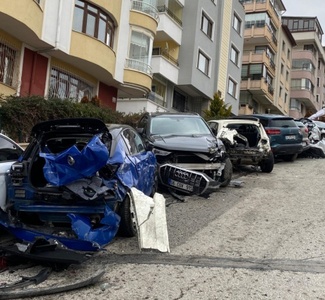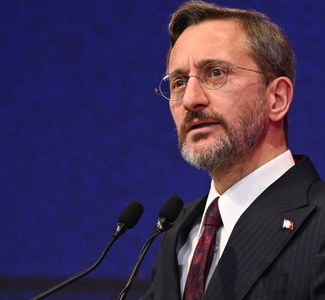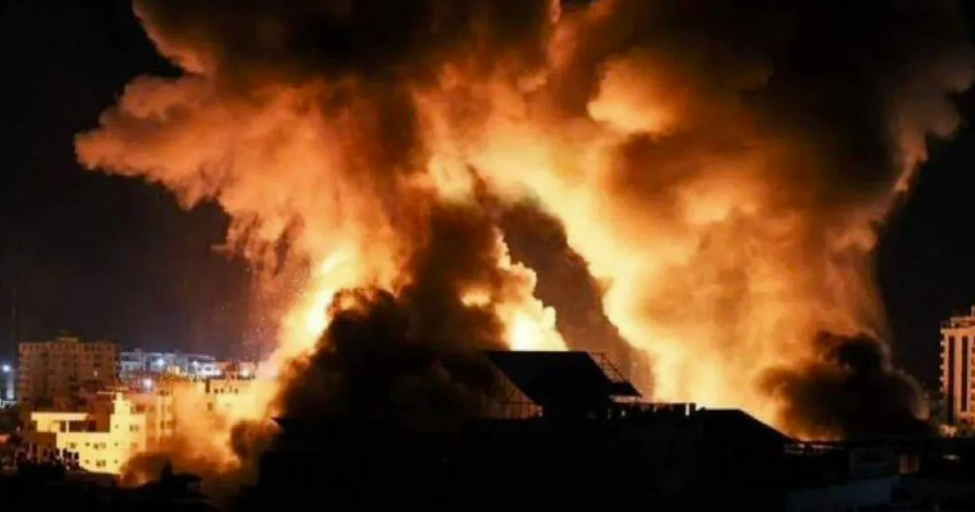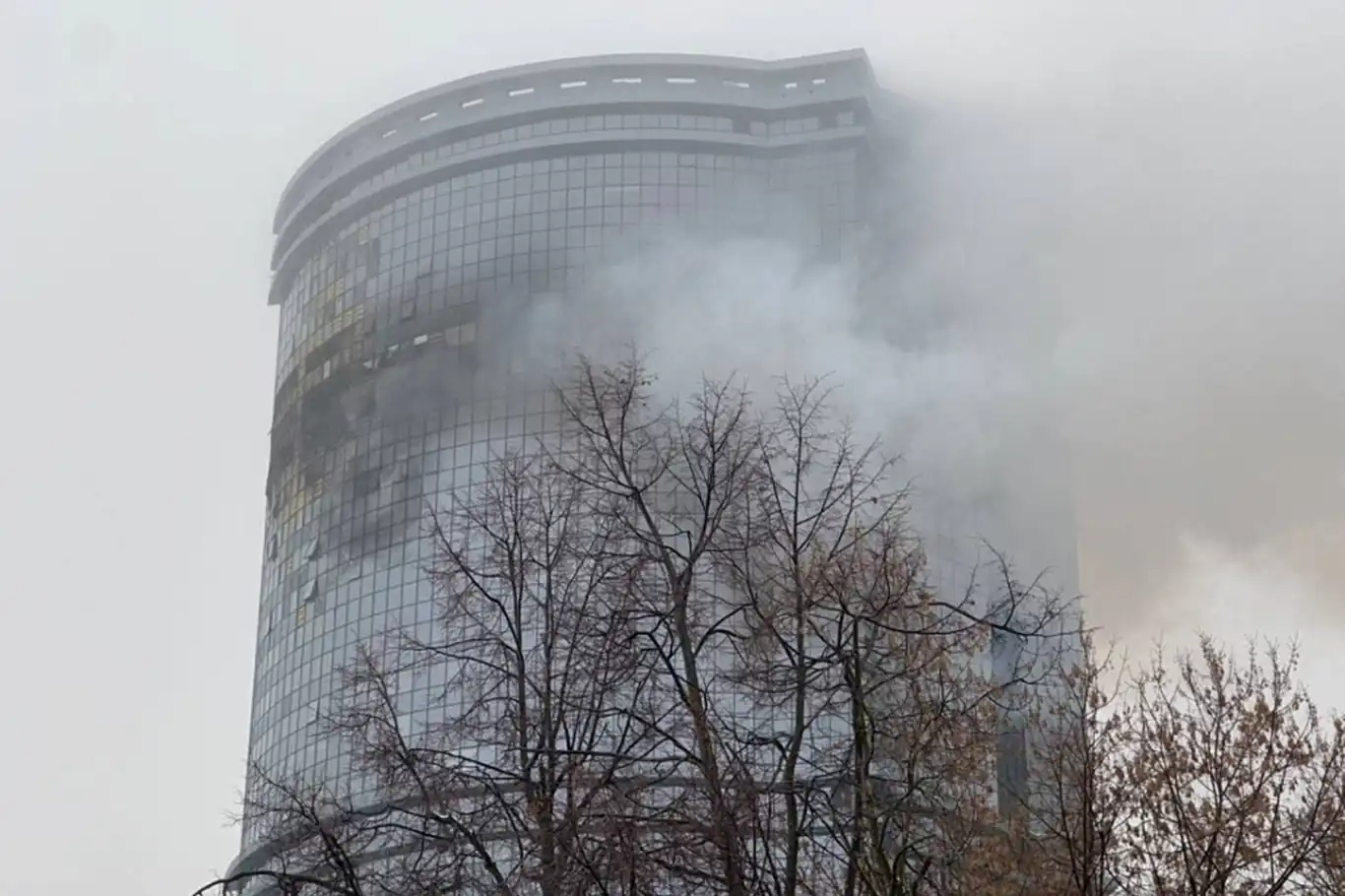University students and staff in Diyarbakır call for boycott of israeli products
Students and faculty members at Dicle University in Diyarbakır have united to demand the cessation of sales of products from companies supporting the Israeli occupation regime in campus cafes and canteens.
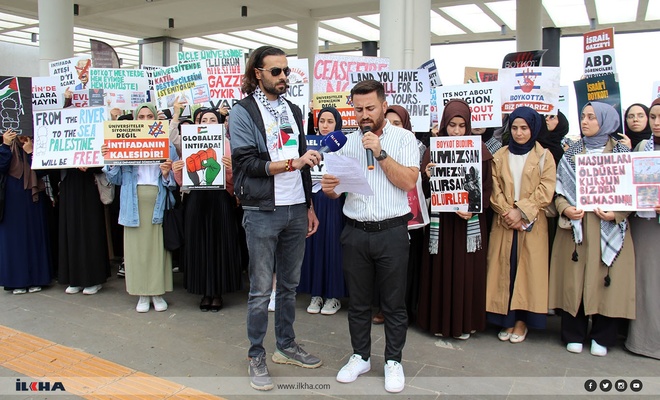
 Google News'te Doğruhaber'e abone olun.
Google News'te Doğruhaber'e abone olun. The call came during a press statement organized by the group in response to ongoing atrocities in Gaza.
The protest against the Israeli genocide in Gaza, which have persisted for over seven months, has been ongoing since its inception. In Diyarbakır, students and staff at Dicle University convened to voice their opposition to the sale of products associated with companies openly or indirectly backing the Israeli occupation regime within the university campus.
Speaking on behalf of Dicle University students, Selçuk Arslan emphasized that today marks the 220th day of the Gaza genocide. Arslan stated that since October 7, approximately 35,000 Palestinians, including 15,000 children and infants, have been martyred. He condemned Israel, along with its supporters, accusing them of perpetrating cruelty and genocide while also highlighting the complicity of various global corporations.
Arslan noted that some companies provided aid to Israeli forces, used Palestinian symbols in propaganda, or supplied technology for surveillance and violence against Palestinians. He underscored the importance of individual action, advocating for a boycott of products associated with the occupation regime.
Arslan highlighted the global condemnation of the atrocities, including protests by students worldwide, and referenced individuals like Imam Hasan Saklanan, who expressed their opposition at great personal risk. He called for a unified boycott of goods linked to the occupation regime, emphasizing the financial impact on Israel and citing historical examples of resistance.
Concluding the statement, Arslan demanded the immediate removal of Zionist products from campus cafes and canteens, stressing that their democratic opposition would persist until their demands were met. He urged university administrators, particularly the rector, to address the issue promptly. (ILKHA)
